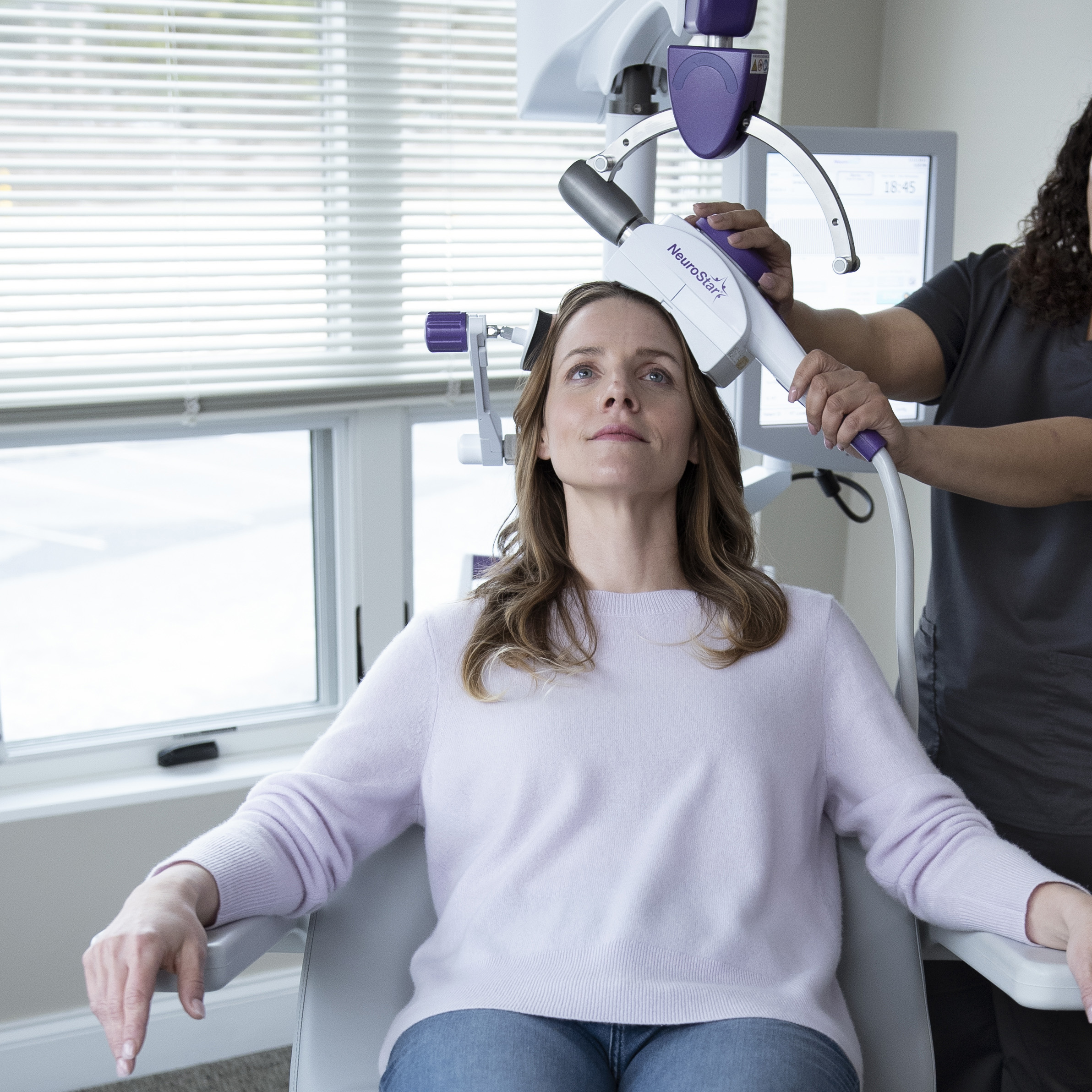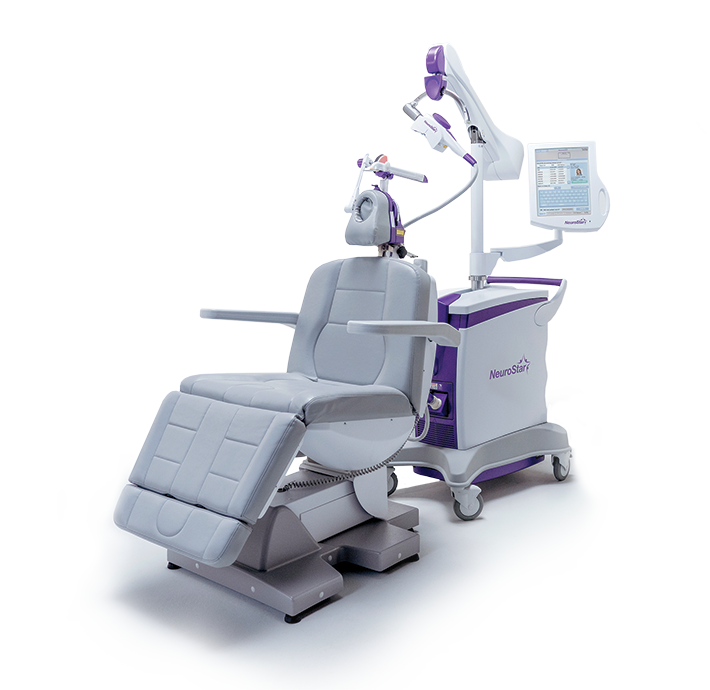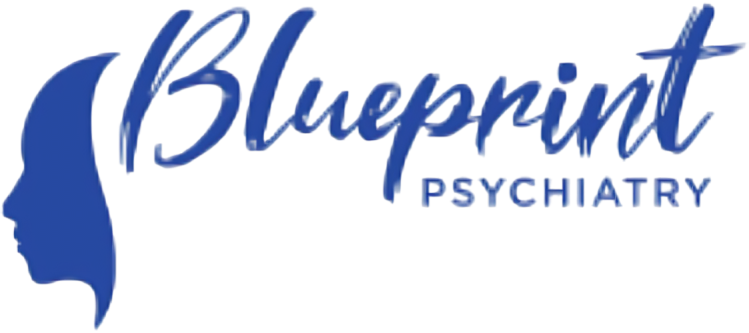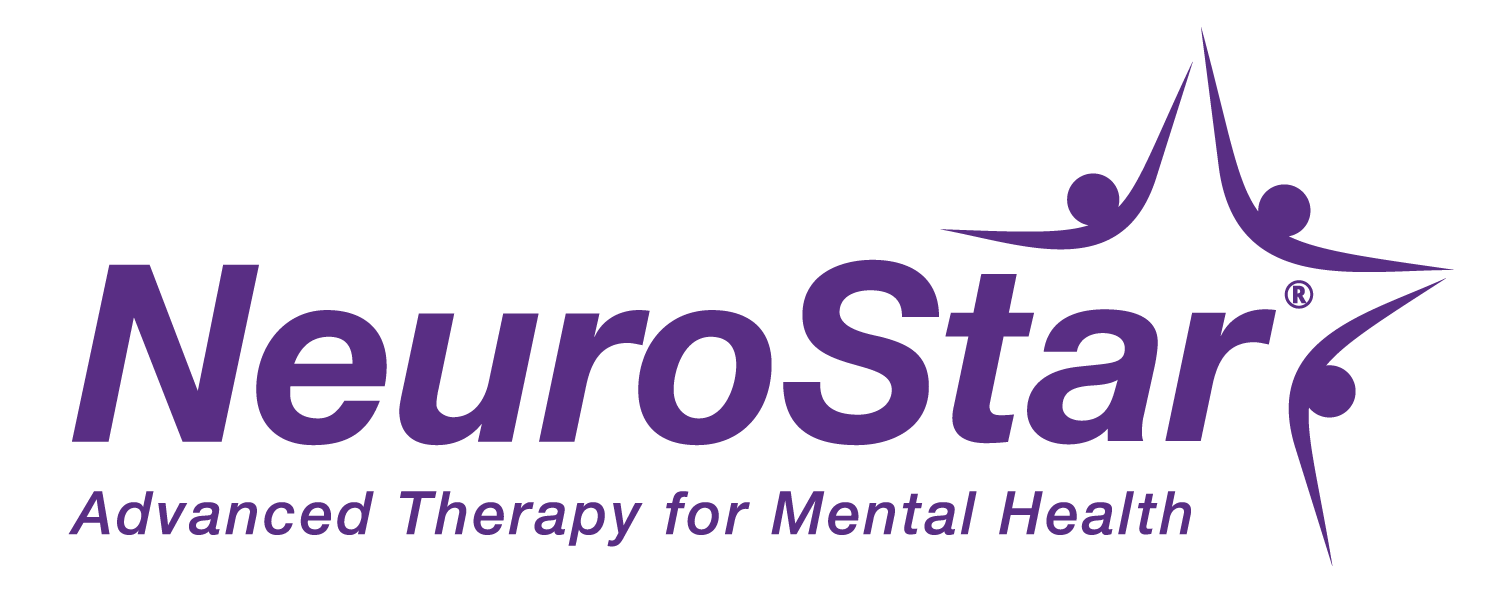TMS Therapy In Georgia

About NeuroStar® TMS Therapy
NeuroStar uses transcranial magnetic stimulation (TMS) to target specific areas of the brain that are less active in people with depression. It’s different from electroconvulsive therapy (ECT).
Although the exact cause of depression remains unknown, the leading scientific theory suggests it’s due to an imbalance in the brain’s neurotransmitters—chemical messengers that facilitate communication between brain cells.
What is NeuroStar Advanced Therapy (TMS)?
During a NeuroStar treatment session, a magnet similar in strength to those used in MRI machines stimulates nerve cells in the brain region believed to control mood. These magnetic pulses can positively impact neurotransmitter levels, potentially leading to long-term remission.
Key Benefits of NeuroStar Advanced Therapy:
- Sessions take place in your NeuroStar doctor’s office
- You can resume normal activities immediately after treatment
- You remain awake during the session
- Most health insurance plans, including Medicare and Tricare, cover it
With over million treatments administered, this innovative approach is offering new hope to people every day.

Transcranial Magnetic Stimulation
Do you suffer from moderate to major depression?
TMS is a treatment that safely delivers magnetic pulses to areas of the brain that are responsible for mood. Instead of using invasive electrical currents like in electroconvulsive therapy (ECT), the magnetic pulses from TMS are similar in strength to those emitted during a typical MRI. The pulses are directed toward the prefrontal cortex of the brain to change the magnetic field and stimulate neurons within the mood center. This not only mitigates depression for a short time but can also result in long lasting relief. TMS treatment usually includes non-invasive, in-office treatments that take less than an hour each day, five days each week.
In addition, we’ve combined Customized Nutrition with TMS to increase your chance of a faster therapeutic outcome. This addition helps your body fill nutritional gaps and increase serotonin levels. This is also proven to decrease depression in clinical studies around the world. If you suffer from moderate to severe depression and seeking answers, call for a TMS evaluation appointment with Dr. Nelson today.
Videos
FAQ's
Transcranial magnetic stimulation, often referred to as TMS is a noninvasive procedure that uses magnetic fields to stimulate nerve cells in the brain to improve symptoms of depression. TMS is typically used when antidepressant medications haven’t been effective, have ceased working, or as an alternative to medication.
TMS involves delivering magnetic pulses to specific parts of the brain.
A typical initial course of treatment is about 19-37 minutes daily over 7 weeks.
A vast majority of commercial and Medicare plans have recognized the effectiveness of treating depression with TMS Therapy and now cover TMS as part of their plans.
TMS does not circulate in the blood throughout the body, so it does not have side effects like weight gain, sexual dysfunction, nausea, dry mouth, sedation, etc. The most common side effects reported during clinical trials were headache and scalp discomfort —generally mild to moderate—occurring less frequently after the first week of treatment.
No. TMS Therapy involves a unique method of using pulsed magnetic fields for a therapeutic benefit. The intensity of the magnetic field is similar to that of an MRI. These techniques differ radically from the popular use of low intensity, static magnetic fields. Those products deliver weak and undirected static fields that are not capable of activating brain cells. The activation and stimulation of brain cells is a key part of why TMS is so effective.
While there may be some minor discomfort at the treatment site (where the device touches your head), it generally subsides within the first week or treatment. There is no sedation, or impact on your alertness. You can read, watch TV, or talk with your treatment coordinator during your session, and you can drive home immediately after treatment.


